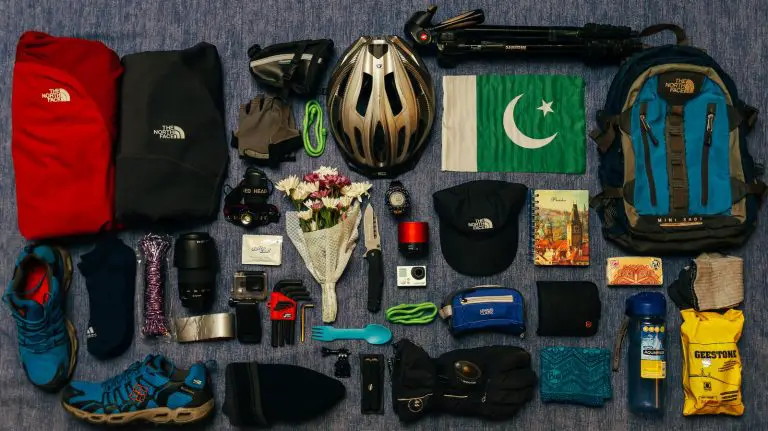The 10 essentials are a list of items that hikers should carry with them on every hike to ensure their safety and survival in an emergency situation. These items are:
Navigation
- Map: A topographical map of the area you’re hiking in is essential for navigation.
- Compass: A compass is a backup navigation tool to help you determine your location and find your way back to the trail.
Sun protection
- Sunglasses: Sunglasses protect your eyes from harmful UV rays and glare.
- Sunscreen: Sunscreen protects your skin from sunburn and skin damage.
Insulation
- Extra clothing layers: Extra clothing layers, such as a fleece or puffy jacket, can provide warmth in case of unexpected weather changes.
- Hat: A hat can provide warmth and protect your face and head from the sun.
Illumination
- Headlamp: A headlamp is a hands-free light source that is essential for hiking in the dark or in low-light conditions.
- Extra batteries: It’s important to carry extra batteries for your headlamp in case the batteries die during your hike.
First aid
- First aid kit: A first aid kit should include bandages, gauze, pain relievers, and any other necessary items to treat minor injuries.
- Personal medications: If you take any personal medications, make sure to bring them with you on your hike.
Fire
- Matches or lighter: Matches or a lighter can be used to start a fire for warmth or to signal for help in an emergency.
- Fire starter: Fire starter, such as dryer lint or cotton balls soaked in Vaseline, can make it easier to start a fire in wet conditions.
Repair kit and tools
- Multi-tool: A multi-tool, such as a Swiss Army Knife, can be used for a variety of tasks, such as fixing gear or cutting rope.
- Duct tape: Duct tape can be used to repair gear or cover blisters.
Nutrition
- Energy snacks: Energy snacks, such as trail mix or energy bars, provide fuel for your body during your hike.
- Water: It’s important to stay hydrated during your hike, so bring enough water for the entire hike.
These 10 essentials should be taken on every hike, regardless of the length or difficulty of the trail. It’s better to be prepared for any emergency situation that may arise, rather than being caught off guard.
The 10 essentials for hiking include navigation tools, sun protection, insulation, illumination, first aid, fire, repair kit and tools, and nutrition. These items are essential for ensuring hikers’ safety and survival in an emergency situation and should be taken on every hike.

